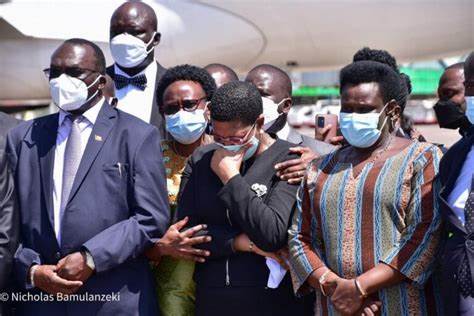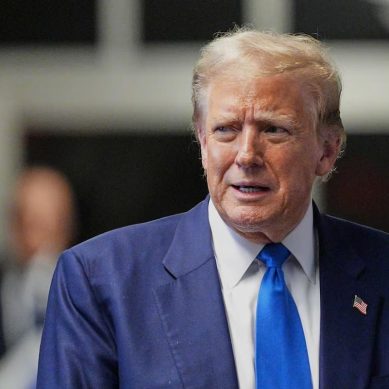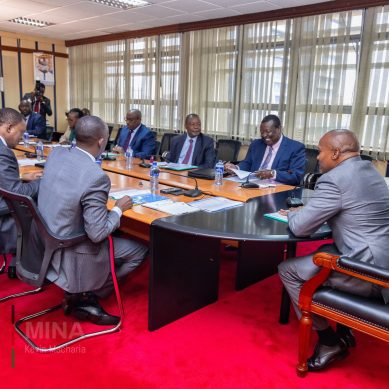
Let me begin this article by defining some key words and terms in the topic of intellectualisation. The term “elite” according to Oxford Advanced Learners Dictionary, is a group of people in a society who are who are powerful and have a lot of influence because they are rich, intelligent.
Thus, we might have academic elite, intellectual elite, political elite, legislative elite, power elite, professional elite, administrative elite, judicial elite, media elite, et cetera. Some elites are public intellectuals, public speakers, comedians, writers, business actors, to name but a few.
In countries that are more oriented towards injustice and inequality, it is only the elite who can afford to access quality education, quality health, quality nutrition, humanising jobs. These days it is children of the elite who cannot be sucked into modern slavery but can easily be sucked into human trafficking, illicit drug trafficking, illicit human organ trade, and illicit trade in various goods and services. They can connive to keep their privileged positions through ensuring that only them or those connected to the access education, health, jobs, resources and various opportunities.
The military elite who took up arms against the regimes of Apollo Milton Obote and Tito Okello in the 1980s and finally captured the instruments of power in Kampala on January 25, 1986, did not only have political power as their target but also capturing resources for their individual benefit. They capture money and goods in banks, cooperative unions and cooperative societies and cows, and some of the loot was ferried to Rwanda by refugees who participated in the bush war in the Luwero Triangle.
Today the combatants run the economy in all its entirety. In the majority of cases to participate in the economy one must be connected to power or the actors in the power dynamics in the country. One is lucky if one has kinship, ethnic or political ties to power or those connected to power.
One distinguishing feature of our elites is that they are greedy and selfish and believe only today and now matters. They are not so futuristic in their thinking; meaning that they do not factor future generations in their equation and are more oriented towards exploiting goods and services, conquering nature and the anti-conservation attitude is almost universally developed amongst them as is the attitude that they are modern.
They tend to be westernised and despise and hate their rural roots. They are almost completely urbanised, with extremely few of them having homes in the rural homes where they ancestral homes persisted for centuries. As such, they are outward-looking, with wandering minds that are more comfortable externally than internally. They need mind liberation, otherwise their country can never liberate from them and from foreigners.
More than the physical military liberations of the 1970s and 1980s that have been politically sold as the only liberations, mind liberation is a necessary liberation and is superior to the political and military liberations of old. Minds must be decolonised, de-westernised, and de-eliticised.
Today there is exacerbated elitism in Uganda whereby the false idea that people of certain ethnicity, kinship, political faith and genealogies should access all opportunities and resources. The latter is the reason why hereditary politics has been made integral to the political spectrum and processes of the country. The attitude behind this is that the poor from poor families or genealogies should never ever come anywhere near power, which has been reduced to being financially rich.
It does not matter how one gets rich, although in the majority of cases the rich of the country have accumulated wealth primitively by stealing from the poor, dipping their long fingers or manipulating the national budget or line budgets in the national budget in their favour.
On November 29, 2018, William Davies wrote an article on elites in the British newspaper, The Guardian, under the title “Why we stopped trusting the elites”. He wrote that the credibility of established figures has been demolished by technological change and political upheavals and that it is too late to turn back the clock. He noted that politicians were exploiting their power for their private interest. In this article I have shown that our political elite and other elites are dishonest and untrustworthy.
Few Ugandans actually trust them anymore. In her article “Declining trust in elites and why we should worry about it – with empirical “evidence from Germany”, published in the publication Government and Opposition, Vol 43 No 3 of 2008, Victoria Kaina revealed that the mistrust of elites was growing in Germany. The Atlantic, theatlantic.com of 2011/04, records that in the USA, Americans don’t trust the elites.
There is a common saying I have since my undergraduate days in the early 1970s at the University of Dar-es-Salaam, Tanzania, that “Never Trust the Elite”. The recent iron-sheets saga involving top political elites in President Yoweri Tibuhaburwa Museveni’s government who diverted iron sheets meant for the poor Karimojong to their constituents for political gain, seems to confirm this saying and why Ugandans should never trust the elite. The fact that the courts absolved them and President Tibuhaburwa Museveni has tiptoed on taking action on the top political elite to show that he means business when he talks of zero tolerance to corruption, has exacerbated the growing mistrust of the elites in Uganda.
Many Ugandans now believe that the elite across the board connive to undermine both the country and the people in the craze for development, transformation and progress.
This brings me to the gist of the topic of discussion: the sociology of Uganda’s elites. Having identified the various categories of elites of Uganda, let me now come to unravelling the sociology of our elites. First let me use the definition provided by Wikipedia to explain what sociology means.
According to Wikipedia, sociology is a social science that focuses on society as a whole, human social behaviour, patterns of social relationships, social interactions and aspects of culture associated with every day as a whole. It may be looked at as the scientific study of society.
From what I have submitted so far, it is clear that the sociology of Uganda’s elites is both complex and confused. It is no longer true that one is an academic and intellectual one is destined to become a leader or a rich and influential person. This is mainly due to the sovereign power of the President of Uganda, Tibuhaburwa Museveni, who has institutionalised presidentialism, deep state and hereditary politics, thereby disorganising normal societal structure and function.
I have already defined presidentialism, deep state and hereditary politics in other articles, which you can access on Google.com and other sources.
There is too much societal distortion with the academic and intellectual elite now subordinate to the rich elite who are so because of their political, military, economic, social, ethnic and kinship ties to overcentralised power despite the much hype about decentralisation. It is not rate for academic and intellectual elite serving the military elite as more or less slaves. Apparently, professionalism has been reduced to a non-essential in determining one’s position or station in society.
What now matters is how much money one us and how near or far one is from power. This explains the decline in influence of other elites in the media, education, health agriculture and generally in the social arena.
In an effort to maintain and retain power, the powers that be has over the years moved to enhance its influence in determining the social power and influence of State House in the country. Everything, including social standing of certain categories of elites, begins and ends with the president and his state house. Through his power to create institutions and appoint individuals to them, many elites in many institutions in the country owe their social standing and influence to the president and state house directly. This applies to the plethora of presidential advisers, internal security organisation officers, external security organisation officers, military officers, resident district commissioners and their deputies, judges, ministers, permanent secretaries, ambassadors, heads of statutory bodies, commissions, parastatals, et cetera.
Therefore, many elites who dominate and influence the social space of Uganda owe their riches, power and influence to the president or state house. One may say that the social space of Uganda is dominated by President Tibuhaburwa Museveni and state house. Any Ugandan elites who are not connected to the president and state house politically, economically, socially and financially are inconsequential. Such elites include the political elites in the Opposition to the ruling political party, the National Resistance Movement Organisation (NRNM).
This explains the increasing greed and selfishness of many Opposition political elite who are said to be in touch with state house at night to tap into the enormous financial resources at the disposal of the president by virtue of budgetary allocation in the national budget every year and back to their political parties during the day. This way, these dishonest elites and traitors to both their voters and political parties enhance their social power and influence. It is part of the growing complex corruption industry.
Many business chiefs would not be anything socially and in terms of influence if the president did not accord them preferential treatment in terms of money and opportunities. It is not surprising that many business actors are strongly ethnically related to power and socially powerful and influential. Many business elites who try to do hones business without connections to power soon collapse and join the expanding chain of the poor.
The chain includes once socially influential retiree elites who have been denied access to their retirement benefits, and are languishing in their communities. Although they were once powerful and influential they are disregarded in their communities because they have no money to influence others. These days it is money that talks and decides whether one has any influence in society. So the poor elite of today are the rich and influential of yesterday.
The president’s decision to separate the sciences (humanities, social science and natural sciences) in the universities by preferentially giving those in the natural sciences and natural science-based professionals far more money in terms of emoluments, ostensibly to encourage scientific production, has caused social segregation among the elites. The segregation has been extended to secondary schools, ostensibly to encourage science teachers to produce science students for the universities.
Unfortunately, this has disadvantaged knowledge workers in the humanities and social sciences. They cannot easily access scholarships for upward progression, let alone have enough to place their children in good schools. This politically instigated segregation has long term consequences. With the rise of modern slavery, which is also preferred by government as a source of revenue, many knowledge workers will find their children becoming modern slaves.
This article cannot exhaust the sociology of Uganda’s elites. What it has been able to do is to try and create interest in the subject matter so that scholars may create relevant research topics to further look into it. With the rising threat of secondary illiteracy (the illiteracy of the educated), the sociology of our elites will continue to dynamically change, influenced mainly by political choices at the top echelons of power.
Depoliticising the character and fate of Uganda’s elites will definitely require taking the liberation of the collective Ugandan mind seriously.
The universal docile mind characteristic of the body politic of our elites, resigned to the falsehood that Uganda cannot be without President Tibuhaburwa Museveni is creating for us a new crop of elites that we shall not need in the development, transformation and progress of the country. The new crop of elites will be a burden.
- A Tell report / By Prof Oweyegha-Afunaduula, a former professor in the Department of Environmental Sciences of the Makerere University, Uganda











